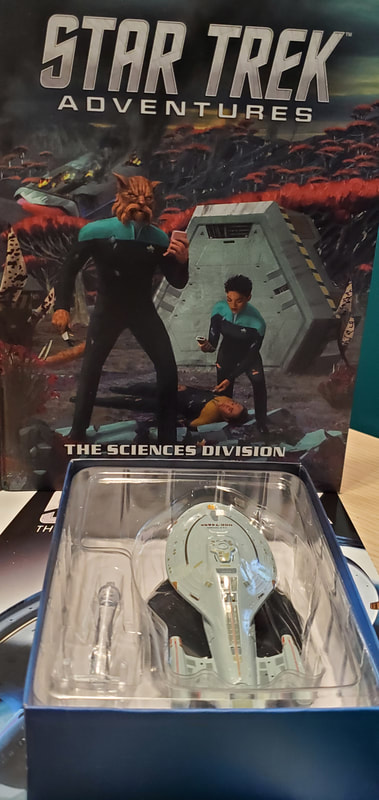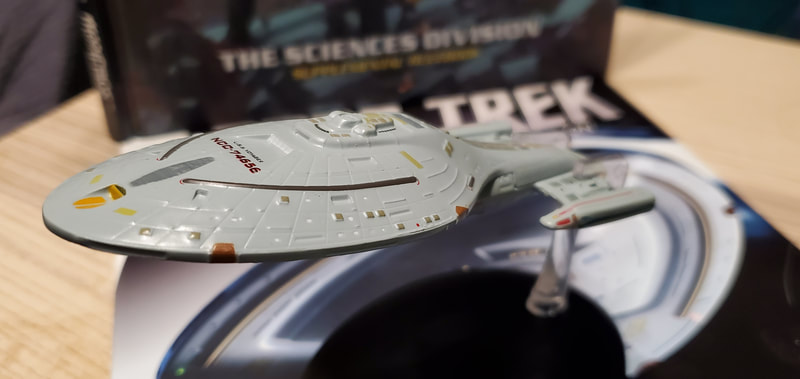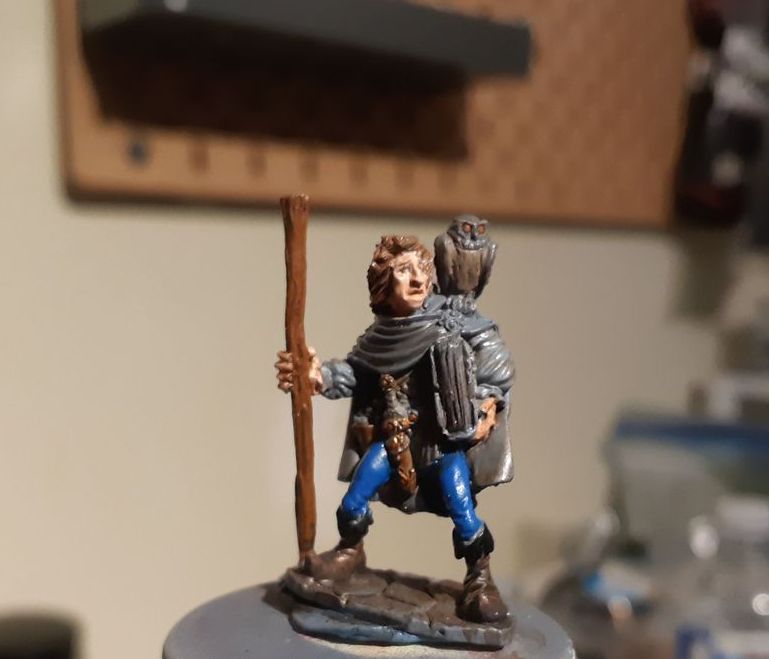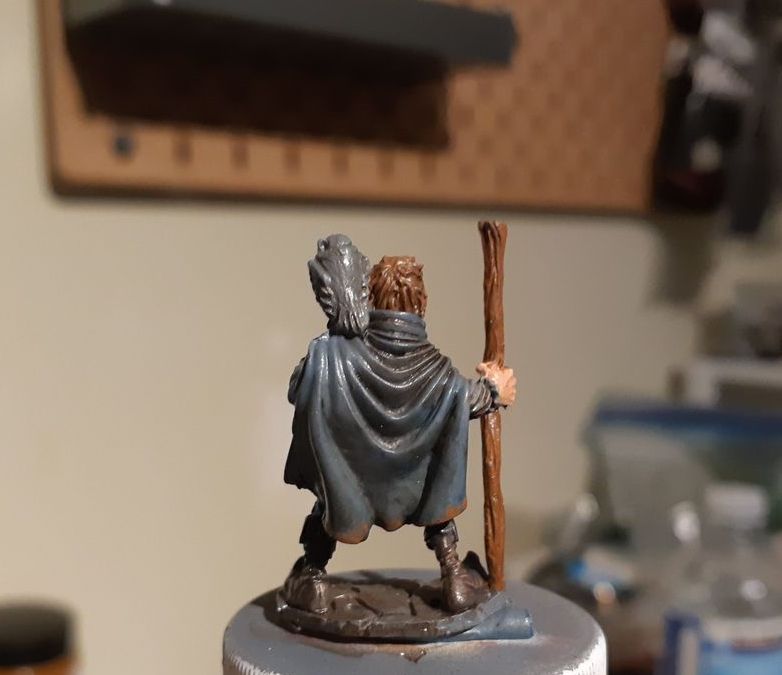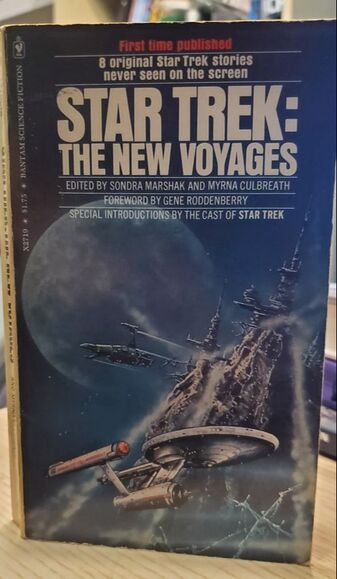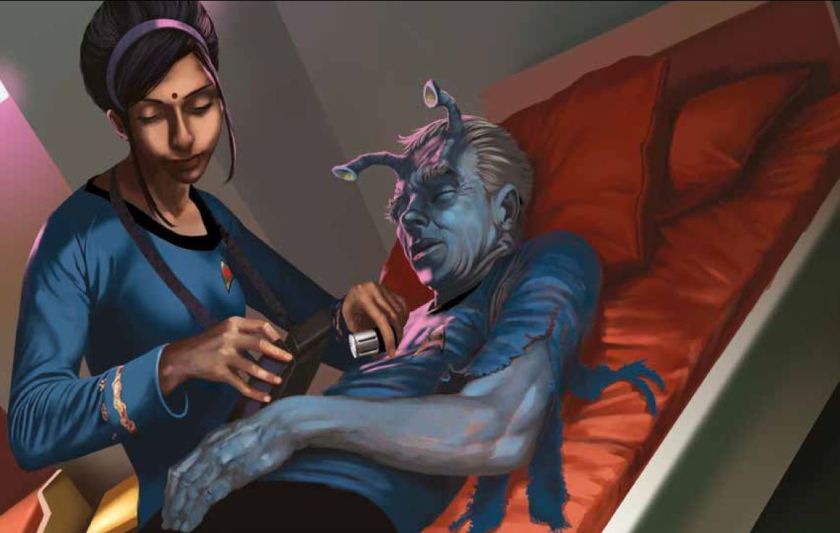|
The Intrepid class was designed as a long range, multi-role exploration vessel. With enough fuel for three years. They could operate at the edge of Federation space and into the unknown and use Star bases for resupply. They are a drastically smaller ship than the popular Galaxy Glass. Crew complement comes in at a relatively small 141 personnel.
It could do over warp 9 for 12 hours but warp 6 was the Intrepid's cruise speed. So they made a very cool and technological ship. But I have a confession to make...I only saw the first season of Voyager. It just didn’t seem to resonate with me. A big part was the setting. All the reasons I don’t like the show is pure athletics. I like the Next Gen area of space. I like its allies and I like its villains. Overall I loved DS9 but wasn’t a fan of the dominion. So because of this it made it more difficult to like for me. For what it is I look for in the show. They also played a lot of things pretty safe especially in the romance department. 7 and the First Officer. The prettiest girl with the prettiest guy. Enterprise also with T’Pau and Trip. Not exactly a stretch. DS9 had some great relationships where the more unexpected characters had quality relationships. Leeta and Rom for one. But overall the writers went with what was comfortable and they went with it over a less conventional relationship elsewhere. But I also don’t like Voyager as a ship. It's unbalanced and I like balance with my ships. Eaglemoss has a variant of this vessel with long engine nacelles and I like it a lot more. So I got the Voyager ship for completionism. It is up to Eaglemoss standard and if you are a fan of the show or the ship I don’t think you will be disappointed. It comes with a booklet which discusses the class of the vessel and how the model guys made it. These are nice. I wish they came with a few more pages and added some more information. Deck plans would be nice. They sometimes miss basic info like crew sizes. But overall the booklets are nice and have cool pics of the ship. The model has some weight to it but it isn't as heavy as some of the other ones and none of these ships are in scale to each other. Excelsior is a tiny model in comparison even though it is a beast of a ship. The detail is overall very good. The paint work is excellent. So the only part that feels a little flat is the underside shuttle which could do with a little more definition. Otherwise this is a excellent model all around and if you are a fan of Voyager then this will look very pretty on your desk or in a cabinet.
0 Comments
This young mage was painted in 2019 as a tabletop commission and he travelled to a new home for ongoing adventures. I had thought about using the idea of Iltheus in a game as I liked the miniature a lot. The miniature has a lot of character and for a miniature that is what I want. There are so many "badass" miniatures out there but sometimes they don't always have a lot of story. Its the small details that add life to a miniature and story. Pouches, a mug, the knights tabard is frayed or torn. How did that happen? When did that happen? Gear on a rogue not just their daggers and hooded cape.
Iltheus has story. He is so unprepared for whatever journey he has been set upon and must now go out into the world and complete it and survive. He carries his dagger awkwardly, it would be difficult to draw and impossible with his hands full. His lack of training and confidence will make it a last ditch defense. His staff is a hunk of wood. Its not polished and covered in runes, made by the Elves or maybe even have any magical properties at all. he may have just found it laying on the ground on his travels and picked it up, complaining to himself the splinters it sometimes gives him. The book is huge and he has decided to carry it. He can't open it without dropping his staff. It is open to the elements. It is also heavy and difficult to hold. Why did he not chose to place it in backpack of some sort to make its transport easier? Why does he not have a backpack. Did he have to leave in a hurry, was there attack or was he simply behind time and got yelled at by his master. What is this huge book? A spellbook and in his inexperience did he choose the biggest he could find thinking this will surely be grand. Is it a cookbook for Agatha at the local tavern. A history of the occult for one of his companions, returning a library book or Vol 27 in the long running series Ghost Tales: How to be an amazing and sexy GM, just like Ghost. His hair is in disorder. Is this how it normally is or only once he has been thrown out into the world. His face conveys concern and inexperience. he doesn't want to be where he is. His cape is dirty and worn, has this been a long journey or is it the only one he owns? Lastly my favourite piece of the mini. The Owl. One which Iltheus neither wants nor understands how he got it and can not get rid of the bird no matter what he tries. He is stuck with it for a real hoot. Is it just an Owl or is it something else? The mini itself is metal and loaded with detail. It comes in at $4.99USD and that is a great price for this great little miniature. Perfect for your low level starting practitioner of magic. Available for Reapermini.com and many good local game stores. First off I want to say....damn I love that cover. It comes from a earlier time. If you look at Sci-Fi art from the 70's and into the 80's you can find a lot of these sorts of style. I have always loved that style.
Doing novels based on series is hard. As is a Role Playing Game. Its always a worry if your getting it right. Is the book or game Trek enough. In both instances I suspect everyone just does their best and see's what they can come up with. I found this gem at a second hand book store. 1976 in the front cover. It features 8 short stories. I must admit I like the short story format. If I don't like the story the next one is not far off. Does it feel Trek? Overall...yes but its certainly a sliding scale. Certainly some good ideas and as a place on my bookshelf its a pretty cool. If you can find a copy it is worth picking up. When doing a discussion about rules I feel near every review is wrong. They nearly always treat the rulesets as a statement of fact, but this is only so in regards to the individual. If someone enjoys crunchy systems they will not enjoy narrative ones for the most part and vice versa. That is just personal preference but it can drastically drive the enjoyment of an individual's game experience. So for this I won’t try to focus on the rules as much as I do I think the rules work for a Star Trek game.
Star Trek is a difficult game. It requires something of players that is not always common. They have to believe in the setting and want to be there. Not from a mechanical rules perspective but from a setting one. A lot of GM’s ignore etiquette and setting in games. There are a lot of reasons for this. It hurts the games they are running too but it would make Trek impossible. So the real question and the first question and seriously I think this should be asked and if the answer is not right don’t progress. The question is simply. Do they want to play Star Trek? Now this isn’t a question of do they want to play a game of Trek. This is asking if they want to play Star Trek. Most fantasy games every character is equal. Not so in Trek. Every player is equal but within Starfleet there are ranks. These come with privileges and expectations. This also means there is a real emphasis on teamwork and the ranks are essential. In all likelihood someone will have rank over another character. The game needs good communicators. It is also Star Trek. Combat is not always unavoidable but it is never meant to be a first choice option. Even when provoked Starfleet is not meant to respond with violence if there is any other option. So many other games the combat is the focus of the game and many times the only reason to play. Trek relies on the RP first. Without combat being the focus the players have to really enjoy playing their character. They need to look at it more like a character on the show and enjoy RP’ing that individual. So as a GM you can’t just have people that will play a Star Trek RPG, what you need is players who want to play that setting, be a character in it and follow the ideals of the setting. Anything less and the game won’t work and after a few sessions it won’t feel right, it won’t feel like Star Trek. GM’s be picky, you really do need the right players. So do the rules help it feel like Star Trek. After playing the game for more than a year I think so. They fit a little more towards the crunchy side with the 2d20 system and my preference for a narrative game like Trek would be to have a more narrative system, but there are narrative elements in the rules. The base skill use is quick and focus on teamwork and helping the other players have a good time is in the rules. Extended tasks are a bit mechanical in nature and I tend to not use them in order to keep the pace going. We have also simplified ship to ship combat as nearly every game struggles to make ship combat simple and to move at any pace other than a snail. Trek works best when its narrative, the more crunch the less narrative I have found things. The books are beautiful and read really well. They are interesting, give you the correct feel for what the game is. A couple of companies have tried to do a Star Trek RPG in the past and I have played them all. But only the current one from first opening the book to having played it for a year feels like Trek. The Modiphius game has its faults but it gets it right in the core areas. We are excited to be bring our Star Trek Adventures to you in 2021 It is always a tricky thing when you want to use one game but a ruleset from another. Often the conversation starts with "Do you think X ruleset is bad then?" But that isn't always the case and there are only a couple of rulesets that I really do not enjoy. The factors that go into these choices are a lot more nuanced. Game designers have to chose a ruleset that they think will match the setting. Its style and pace. That is not often an easy thing to do. The ruleset also has to be commercially successful. It will not matter if it is perfect for the setting but everyone doesn't enjoy it.
I think the Shadowrun rules are fine. That wasn't the issue. It stemmed very much from why I RP and what I look for in a game. As long as everyone at the table is having fun it doesn't matter what style or ruleset you do. But over the years I have found I have become far more disinterested in rules. I play with some friends whose eyes light up in a crunchy ruleset combat. They enjoy the tactics and resource management of those combats. They love to chose the right feat/spell at the right time. It is a totally valid way to play. It's just not me. I am the 7 year old jumping from a tree limb as if it were a pirate ships mast. Have at thee ya muck rake! Its story, narration and the players characters that excite me. To pull me into a different world, to have unexpected things arise and to see how the players create a shared story. A improv play with rules is what fires me and Genesys (7th Sea is another) is the best narrative ruleset I have seen. The dice pulls the players into story, it helps them add good and bad elements into every skill roll they make. it encourages the players to be descriptive and to expand upon ideas. I love Genesys. Now there was a very important distinction which I hope people noticed. I said I felt it was the best Narrative RPG not the BEST RPG. Everyone plays for different reasons and different rulesets provide for different players and their playstyles. The ruleset that works best for me might not for the next player. Find the game you love and play that with other people that want to play that way and you should always have a good evening at the table. Ghost |
CrewGrand Master Aaron, Adam, Chris, Cieran, Emily, Eva, Rebecca. Dream team extraordinaire. Archives
March 2024
Kritfayle Copyright 2022
|
Kritfayle
Copyright 2024
Copyright 2024


